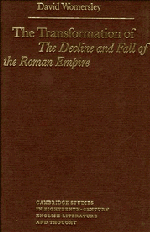Introduction
Published online by Cambridge University Press: 05 September 2013
Summary
In 1936 Friedrich Meinecke scanned the features of eighteenth-century historiography in his Die Entstehung des Historismus – a study which remains the most recent attempt to take in the historical endeavour of that period in a single draught. Reviewing the origins of the intellectual movement of which he was himself a late product, Meinecke made large claims for its significance:
… [historism is] one of the deepest and most incisive revolutions in the history of Western thought in general, whereby the Western genius worked out its own individuality in distinction from that of the ancient world without, however, losing the thread of continuity that bound them together.
For Meinecke, then, the achievement of historism stemmed from the fullness with which its practitioners understood that we can properly comprehend the relation of what has been to what is only when we have recognised the independence of the past from the present, and acknowledged that they may be divided, even sundered, from each other.
This mental flexibility – the capacity to seek out both division and continuity in history without sacrificing the legitimate claims of either to the other – typifies Meinecke's formulation of the historist's characteristic strategy when contemplating the past. The historist's ambition is to free the past from the condescension of the present, and thereby to free the present from its own, more insidious, bondage.
- Type
- Chapter
- Information
- Publisher: Cambridge University PressPrint publication year: 1988



